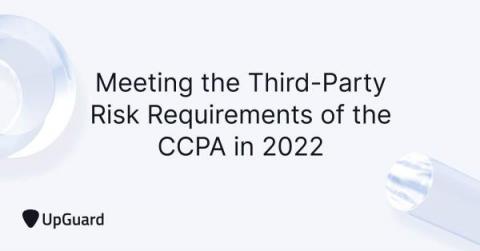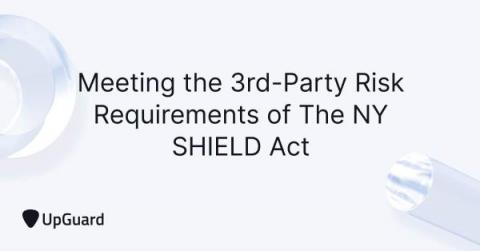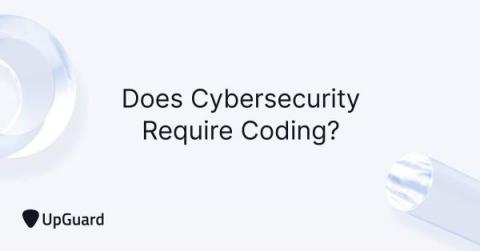Meeting the Third-Party Risk Requirements of the CCPA in 2022
Often regarded as the Californian version of the General Data Protection Regulation (GDPR), the California Consumer Privacy Act (CCPA) aim’s to increase consumer rights by giving California residents greater control over the use of their personal data. The CCPA heavily regulates the use of any data that could potentially link to the identity of a consumer or household, either directly or indirectly.







